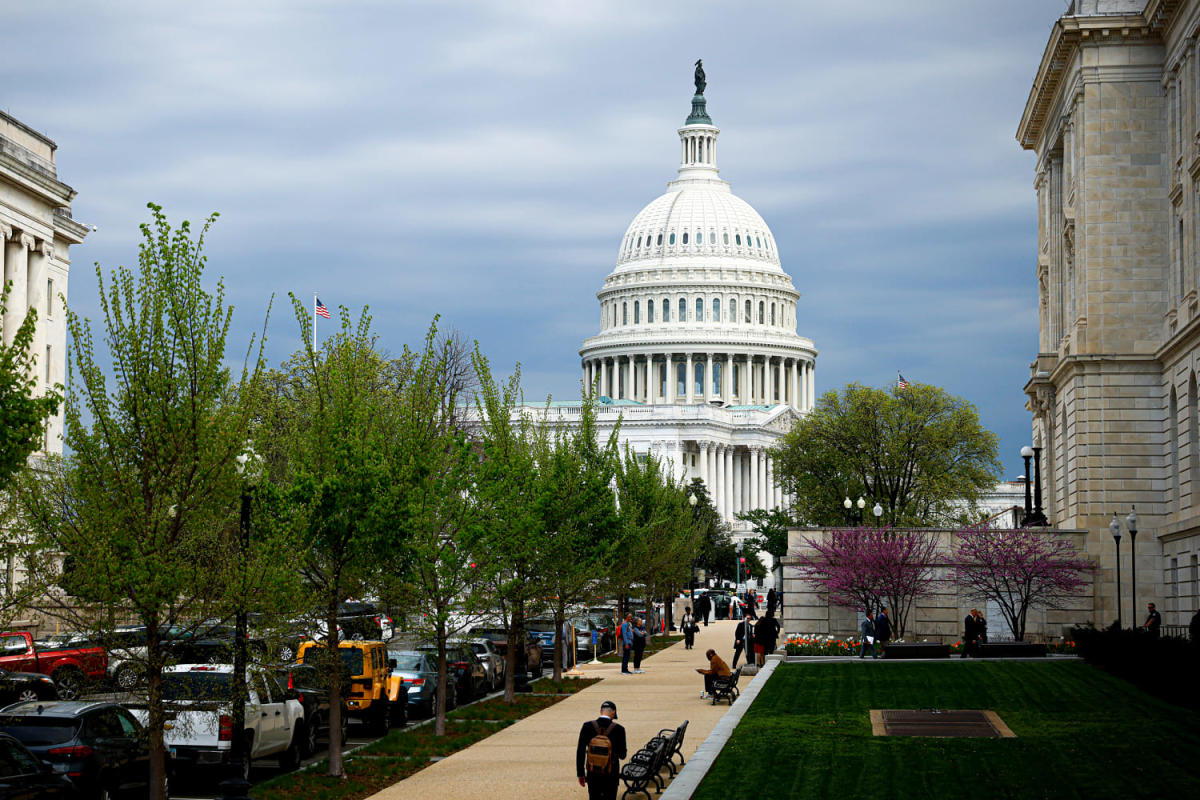WASHINGTON — The new Republican majority in the Senate is vowing to leave the filibuster in place and maintain the 60-vote threshold to pass most legislation — even if it hinders the Trump agenda it hopes to advance.
Shortly after being elected the next majority leader, Sen. John Thune, R-S.D., responded clearly and unequivocally when asked Wednesday whether the filibuster would remain unchanged under his watch.
“Yes,” he told reporters.
In interviews this week, several Republican senators representing different ideological factions said they support retaining the filibuster rule as they prepare to take full control of Washington with newly elected President Donald Trump back in the White House, a Senate majority of 52 or 53 seats and a majority of 52 or 53 seats in the Senate. narrow majority in the House of Representatives.
“I think there is unanimity that the filibuster is important. So I don’t think that’s controversial,” Sen. John Cornyn, R-Texas, who ran unsuccessfully for majority leader, said Tuesday.
Sen. Tommy Tuberville, R-Ala., said he is committed to protecting the filibuster — and that he won’t be persuaded by Trump or others.
“No. No. No. We need to keep the filibuster,” Tuberville said.
Sen. Kevin Cramer, R-N.D., said he “absolutely” supports keeping the 60-vote threshold even if Trump revives his demands to reject it — as he unsuccessfully urged the Republican Party to do during his first term encouraged to do this.
“Senators tend to defend their power, just like everyone else does. I don’t know many wimps in the United States Senate,” Cramer said. “I think we’ve all experienced the possibility of losing the filibuster as a defense tool. And I would be surprised if there were enough Republicans who thought we should change that now.”
Democrats did not share the Republican commitment to preserving the filibuster when they controlled Congress. In 2022, they sought an exception to the 60-vote rule to pass national voting rights legislation by majority vote. They fell two votes short of changing the rules, though they signaled they would revisit that push to endorse abortion rights if they win the 2024 election.
Republicans are less eager to break the filibuster, in part because some of their biggest priorities are already exempt from the 60-vote rule. These include confirming judges and cabinet nominees, which require a simple majority. Other priorities, such as cutting taxes and adjusting spending laws, can be accomplished through the 51-vote Senate budget reconciliation process.
In fact, Republicans hope to start that process by advancing a budget resolution in early January, before Trump is inaugurated, two senior Republican aides told NBC News. That move would allow them to advance some of their top priorities on a party-line basis once Trump takes office, including extending Trump’s 2017 tax cuts, providing more money for border security and other measures.
Conservative senators also see the 60-vote rule as a safety net against Democrats pushing through their most ambitious progressive priorities when they eventually return to power. These senators believe their party has more to lose than to gain if there is no supermajority requirement.
Sen. Rand Paul, R-Ky., said he supports keeping the filibuster “in perpetuity — for the duration of the republic.”
“If we wanted to take over the country and … get what we want, we would get rid of the filibuster,” Paul said.
Instead, he said, the Republican Party will accept that it must govern at “a much slower pace” and not be able to “transform the country quickly.”
“Apart from one or two items that will be approved under budget reconciliation, most items will require 60 votes,” he said.
The filibuster did not come up Tuesday at the Senate Republican forum hearing from candidates for leadership positions, senators in the room said.
Keeping the filibuster means that a series of necessary measures, such as government financing, a farm bill and an extension of the debt ceiling, are subject to 60 votes in the Senate. The GOP has gained 52 seats, with only Pennsylvania still too close to call, according to NBC News projects. That means Democrats will have a substantial say on these measures.
“Neither chamber will have an overwhelming majority, and these spending bills will be a bipartisan product,” said Sen. Patty Murray, D-Wash., chair of the Appropriations Committee, who will become vice chair if Democrats take control on Jan. 3 give up.
Sen. Thom Tillis, R-N.C., who has threatened to resign from the Senate if Republicans destroy the filibuster, said he remains confident the party will keep it in the second Trump administration.
“I don’t think that will change,” Tillis said.
Outgoing Minority Leader Mitch McConnell, R-Ky., told reporters after the election that “the filibuster will endure” in the new era of Republican control. (Although he will not be in leadership, McConnell has said he will complete the remaining two years of his Senate term as a regular member.)
Paul said Republicans will accept the legislative filibuster’s limitations even if it hinders their goals, such as restricting abortion.
“You have people saying, ‘Oh my goodness, the Republicans are going to ban abortion.’ But do you know why there won’t be a ban on abortion? Because of the filibuster,” Paul said. “So there is actually a very lofty purpose behind the filibuster. Those of us who are now in the majority for it should get the credit from the left saying, oh, we’re all Hitler and we all want to destroy democracy. No, we are actually giving a voice to the Democrats to ensure that the Republicans don’t win every battle.”
This article was originally published on NBCNews.com







